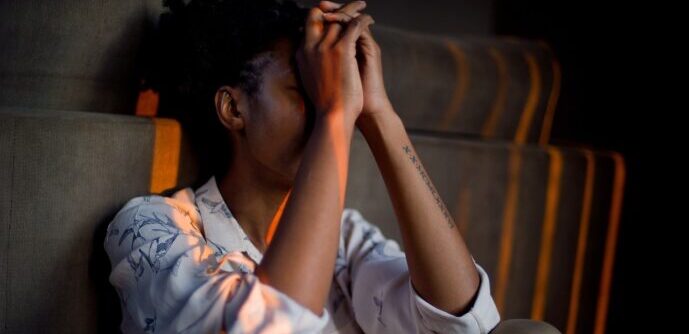You can let stress beat you up, or you can put it to work in…
Does It Make You Crazy?
Do some people and circumstances in your life make you “crazy?” What is there about these people and situations that affect you this way?
- What sets me up for this?
- It’s Yours and Only Yours
- Where do I get these beliefs?
- Are you sure?
- What if I don’t want to be “crazy” so much?
What sets me up for this?
We all have this experience in our lives to different degrees. Typically, we blame the other person or the circumstances themselves for the crazy-making. But the responsibility for the craziness may lie somewhere else. A couple of voices from history may shed new light on this for you.
If you are disturbed by a thing, it is not the thing that disturbs you but your own judgment about the thing, and it is in your power to wipe out this judgment now.
Marcus Aurelius
It is very obvious that we are not influenced by facts but by our interpretation of the facts.
Alfred Adler
Our “judgment” about things or our “interpretation of the facts” sets us up to get crazy (stressed) when people’s behavior and situations are contrary to our comfortable belief system*. We expect them to be like we want them to be, and when they are not – “crazy.”
It’s Yours and Only Yours
Your belief system may be more or less true to reality. Some beliefs may be an outright lie that we hold as truth. Nevertheless, that belief system is our unique version of reality. There is no other like it, and, for many, there is no other system so “right.”
These beliefs become a lens through which we understand the world and a framework for what we expect from the world. You expect people are to think, behave, and perform in line with this belief system, and when they don’t measure up, you can get “crazy” (stressed). The more they don’t measure up to your expectations, the crazier you can get.
In some cases, our beliefs become a basis for judging and evaluating and even determining what is right and wrong. They may also become a standard for categorizing people and things. These judgments are needed for living and can be useful. But they can become unhealthy patterns of thought like stereotyping, prejudice, racism, and elitism.
Where do you get these beliefs?
“How did I come to this belief, to this way of thinking?” This question is a helpful one to ask yourself often.
In the process of development, people develop ways of thinking about how the world works. This system of belief helps us organize and manage the massive amount of data we encounter from a very dynamic, variable, and ambiguous life experience. It is a giant mental model or constructed reality of how we perceive and expect the world to be. It also helps us make the world a little more predictable as we approach the future.
Your beliefs may come from your family of origin, where you learn from the belief systems of your parents, which, despite their best efforts and intentions, may not be entirely true to objective reality. You create your own belief by observing others to discover what gets desired outcomes in relationships and productivity. You may also create your beliefs from direct personal experience of how thoughts and actions create bad and good experiences. And, you may put all of these sources together to create your own.
Are you sure?
We accept many of our beliefs as truth, without investigation, just because someone else told us it was so. Since your beliefs are only one person’s version of reality, they are shifting ground for our living and relating since there are billions of other versions, some more consistent with objective reality than others.
The growing, learning person consistently evaluates their beliefs. If you don’t do this, a circumstance may come that reveals that a belief, as you hold it, is not working any longer. It’s just not consistent with reality. Such circumstances force you to evaluate that belief and adjust it if you want to live and relate well.
It’s an old, frequently-told story, but it illustrates the issue of unexamined beliefs.
Helen always cut the ends off of the ham she was about to cook. Her daughter asked about her reason for doing so. Helen answered, “That’s the way my mother always did it.” Her daughter then asked, “Why did grandma do that?” Helen confessed that she did not know. Wondering now, Helen decided to ask her mother why she cut the ends off of the ham. Her mother said, “That’s the way my mother always did it.” Helen contacted her grandmother to ask the same question. Her grandmother answered, “I cut the ends off so it would fit in the pan.” Helen
What if I don’t want to be “crazy” so much?
You control whether a person or circumstance makes you “crazy.” Your belief system sets you up for it. If you put all your beliefs in cement, you may become pretty miserable since some of them will stop working for you. You can avoid this if you will do the following.
- Commit to being a learner who
- Is courageous, open, critically reflective, curious, and growing.
- Creates perspectives and expectations that are inclusive, permeable, integrative of experience, that are truer to objective reality, and are more helpful for living and relating.
- Clarify your beliefs for yourself as you see them at work in your life and relationships. Sometimes it helps to journal about this so you can get your thoughts on paper.
- Dialog with others about your beliefs and theirs. Dialog involves lowering your biases so you can hear the other person without that filter. This lowering of biases is not giving up your beliefs. It’s just listening with a neutral ear.
- Ask questions of yourself and others. Here are some critical questions to ask.
- What do I believe about this?
- How did I come to this belief?
- Why should I believe this?
- How true is this belief?
- How is this belief serving me as I live and relate?
- How else could I see this?
- How does my belief need to be adjusted to serve better for living and relating?
- Adjust your belief system as needed to serve you better for living and relating.
- Live in light of your new system.
- Repeat.
Support for Your Growth
Everyone has someone or something that holds the potential for “making crazy.” Why leave all that to chance. True Course can support you in building the foundation and structure you are looking for, which will set you up to responding to these situations rather than reacting. Let us support you in your pursuit of more that matters.
Note: In this context, I use the term “belief system” to describe a person’s framework for understanding the world, which may include, but is not exclusively religious beliefs.





